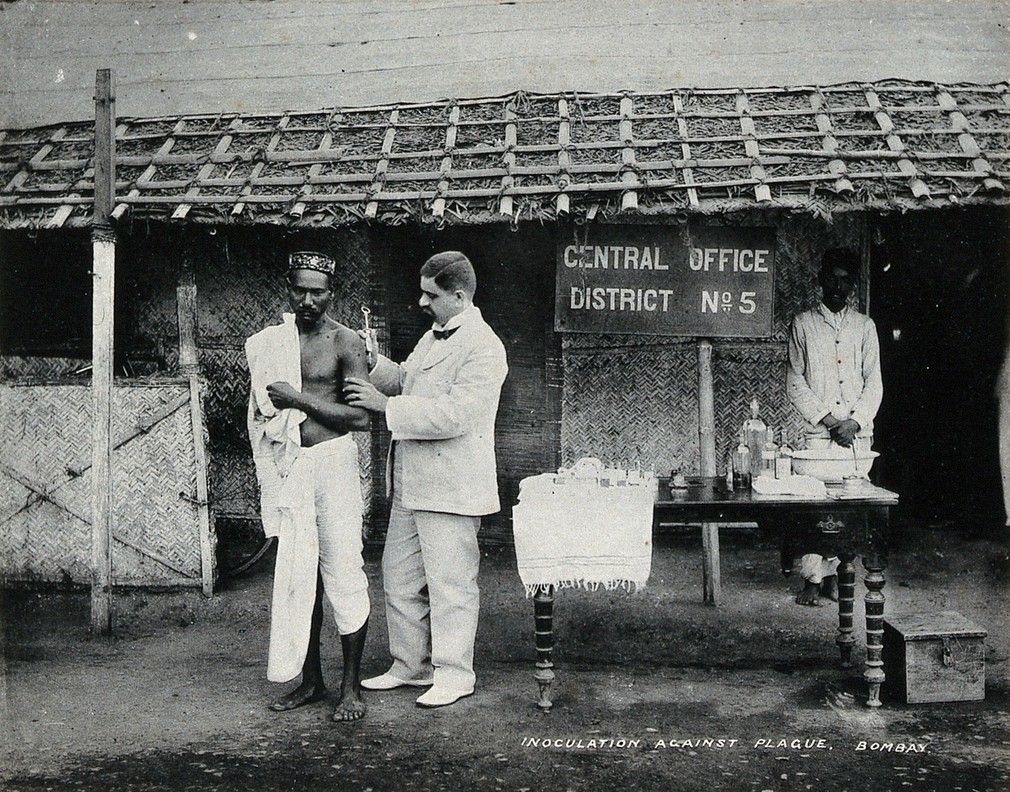The Epidemic Diseases Act, 1897

The Cabinet Secretary on March 11, 2020, announced the invocation of provisions of Section 2 of the Epidemic Diseases Act,1897 to take special measures and prescribe regulations as to dangerous epidemic disease. As the number of cases is taking a heavy count in India, Government is trying its best to curb the spread of COVID-19 with the help of various legal provisions in India like the Disaster Management Act,2005, Indian Penal Code, 1860, and the Epidemic Diseases Act 1897, which is a 123-year-old law which was passed back in 1897 for the better prevention of the spread of dangerous epidemic disease. Most of us are aware of the existence of the Disaster Management Act, 2005, and the Indian Penal Code, 1860 (IPC), but, what is the Epidemic Diseases Act, 1897?
Brief History of the Act

The Epidemic Diseases Act, 1897 is a colonial-era law that was routinely enforced across India to deal with outbreaks of dangerous diseases like- cholera, swine flue, etc. It was first enacted to tackle the spread of bubonic plague in the erstwhile Bombay Presidency in British India. The law was used to a larger extent to control the plague epidemic back then. There were segregations of affected persons, evacuations, and demolition of infected places. Since India's independence in 1947, this colonial-era law continues to find its relevance in tackling epidemics, and even to this date, to reduce the spread of COVID-19 pandemic in India, the Government has invoked this law once again.
The Epidemic Diseases Act, 1897
The beginning of this Act aims at providing the basic objective of this act. This Act was enacted for the better prevention of the spread of dangerous epidemic diseases. The overall act has an arrangement of 4 sections.
- Section 1 of the Epidemic Diseases Act, 1897, declares the name of the act and the extent.
- Section 2 of the Epidemic Diseases Act, 1897 gives power to the States and UTs to take special measures and formulate regulations to contain the spread of the grave disease. It states that when a state government is satisfied that any part of the state is visited by or threatened with an outbreak of any dangerous epidemic disease and if they find that the ordinary provisions of the law for the time being in force are insufficient for the purpose, may take strict measures and temporary regulations can be observed by the public which shall deem necessary to prevent the outbreak of such disease. The government is given the power to inspect persons traveling by railways and other means of transportation. The State Government is allowed to set up hospitals with temporary accommodation for the people who are suspected by the inspecting officer of being infected with any such disease which is seen as being grave.
- Section 2A of the Epidemic Diseases Act, 1897 talks about the powers of the Central Government. When the Central Government is satisfied that India or any part of the country is threatened by an outbreak of dangerous epidemic disease and finds it difficult to prevent the outbreak of such disease through ordinary provisions of the law, the Central Government is empowered to take serious measures and prescribe regulations for the inspection of any ship or vessel leaving or arriving at any port and the detention of any person intending to travel from the port during such a dangerous epidemic outbreak. The Epidemic Diseases (Amendment) Ordinance, 2020, however, expands the powers of the Central Government to regulate the inspection of any bus, train, goods vehicle, ship, vessel, or aircraft leaving or arriving at any land port, port or aerodrome. They are further powered to regulate the detention of any person intending to travel by these means.
- Section 3 of the Epidemic Diseases Act, 1897 talks about the penalty provision of the Act. If any person is found disobeying any regulation or order made under this Act shall be deemed to have committed a punishable offence under section 188 of the Indian Penal Code, 1860. The explanation of the said provision is explained here - Section 188 of the IPC covers offences that are related to contempt of the lawful authority of public servants. Disobedience to such an order duly passed by a public servant is a punishable offense under this section and lays down penalties for such contempt of orders of public servants. To put it a layman's language, this section provides that any person who has the knowledge of an order passed by a public servant by which he is ordered to abstain from doing any act or a direction with certain property possessed by him, disobeys such direction, he is liable to be punished under this section. This section also talks about the type of punishment that is imposed on the offenders which include simple imprisonment for a term which may extend to one month or with fine which may extend to two hundred rupees or with both. And if such disobedience tends to cause danger to human life, health or safety, or causes a riot or affray (fight), shall be punished with imprisonment of either description for a term which may extend to six months or with fine which may extend to one thousand rupees, or with both. The point which is to be noted here is that the explanation mentioned in the bare act implies that mens rea or guilty mind is not necessary for the commission of an offence under this section, but it is sufficient that he has the knowledge about the order which he disobeyed and that such contravention is likely to result in actual harm.
- Section 4 of the Epidemic Diseases Act, 1897 talks about the protection of persons who are acting under this act. In a nutshell, it says that no suit can be instituted or no legal proceeding can be filed against any person who has invoked provisions under this act in Uberrima fides (good faith).
Loopholes?
The Epidemic Diseases Act, 1897 is 123-year-old legislation that may seem or even work as effective to combat the spread of COVID-19 in India, but this Act does have got loopholes which are meant to be thought upon.
- There is no clear definition of what is a 'lethal' or contagious diseases'. The legislation fails at laying down clear criteria for classifying an outbreak as ''dangerous'', based on variables such as the severity of such an outbreak.
- The Legislation needs amendment with due course of time as the situation today and the situation before has a huge line of difference. The Legislation does not provide provisions for the protection of human rights as there can be no legal concern about the safety of human rights during emergency times. If we take the example of remote areas of India, although the government is giving its best to provide medical facilities across the nation, still a few sections of the society is lacking behind proper medical facilities like ambulances or dispensary facilities and are deprived of their basic human rights i.e., right to medical health.
- The Epidemics Diseases Act does not have an equal footing of the rights of the individuals with the power of the State. The Covid-19 regulations need to be modified to remove the immunity against illegal actions done by the state representative in the name of the sovereign function and good faith.
- For proper accountability, the legislation should specify the roles and responsibilities of each state department for the prevention and control of the epidemic.
Conclusion
India's response to COVID-19 is commendable. Multiple laws, rules, regulations, regulatory bodies at all levels are active. The Epidemic Diseases Act has been subjected to a lot of criticism. Within its limited framework, the law gives wide powers to the Central and State/ UT government to take special precautions and measures for dangerous epidemic diseases and undertake coercive actions against individuals. In the present day scenario, it should be made more transparent and comprehensive for controlling such dangerous outbreaks in India.





